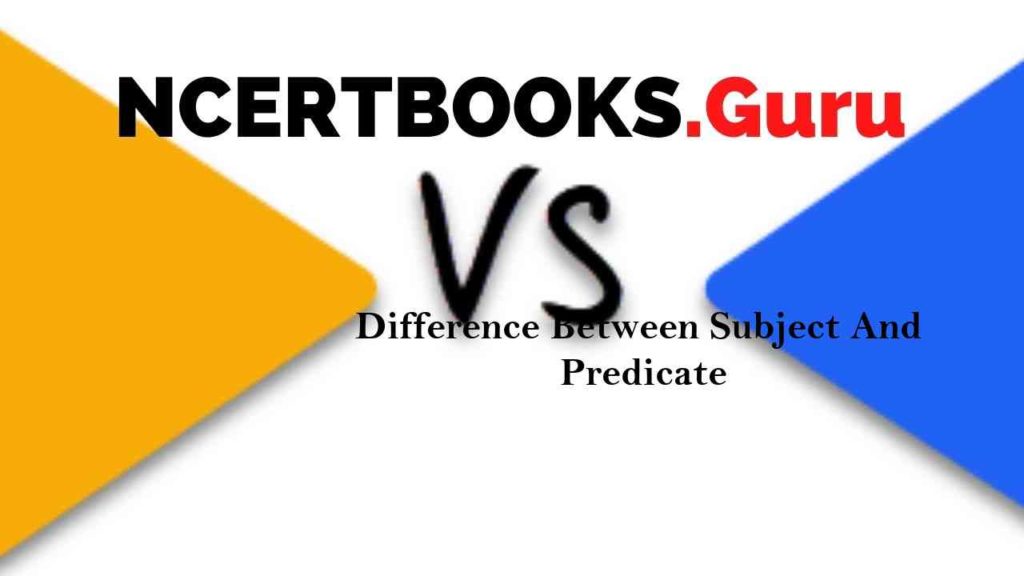Introduction
Referring to the out pocket, you can’t always produce meaning out of nowhere. For every meaning of the expression, you need a Subject as well as a Predicate. While the subject refers to what or whom the sentence is about, the predicate defines or tells something about the subject itself. A group of words that makes complete sense is called a sentence, and every sentence consists of two parts, namely the subject and the predicate.
You can also find differences between articles on various topics that you need to know. Just tap on the quick link available and get to know the basic differences between them.
What is the Difference Between Subject and Predicate?
About Subject
The subject is a part of a sentence defined as a noun or pronoun used in a sentence about which something is being told.
Examples: Barking dogs seldom bite.
- Rama is playing.
- He told us a story.
- Here the subjects are Barking dogs, he and Rama.
- Basically, it names the person or thing we are speaking about in that sentence.
About Predicate
The predicate is that part of the sentence, where the subject gets described or simply a clause which defines, what the subject is doing.
Examples: The parrot flew away.
- Peter is a good boy.
- Jack and Jill went up the hill.
- Here the predicates are Flew away, went up the hill and is a good boy.
- The term what the subject is doing then.
Difference between Subject and Predicate
| SENTENCE | SUBJECT | PREDICATE |
| They are going. | They | Are going |
| Humble is the man of God. | The man of God | Humble is |
| Come here. | You | Come here |
| All these toys belong to Martha. | All these toys | Belong to Martha |
There are a few important points. Here we can see four different kinds of sentences.
- In the first sentence “They are going.”
- It indicates every sentence must have a subject as well as a predicate.
- In the second sentence “Humble is the man of God.”
- It indicates that it is always unnecessary for a subject to fall before a predicate in a sentence. They can also swap places, and the predicate can come beforehand of the subject.
- In the third sentence “come here.”
- The subject is hidden. In some sentences, the subject is left out. So Come here becomes “You come here” and you are the subject.
- In the fourth sentence “All these toys belong to Martha.”
- It indicates that the subject and the predicate may consist of a single word or many words.
FAQs on Difference Between Subject and Predicate
Question:
Is it okay to use a comma in a sentence having a compound predicate?
Answer:
Yes, it is outstanding to use a comma in sentences like these to draw attention. For example, The laptop froze up, then suddenly came back to life.
Question:
What is the difference between a predicate and an object?
Answer:
The subject, the predicate and the object are basically three different components. The predicate is precisely the verb, whereas the object consists of the noun or the concept that is part of the subject’s action. They are three different compounds when a sentence brea
